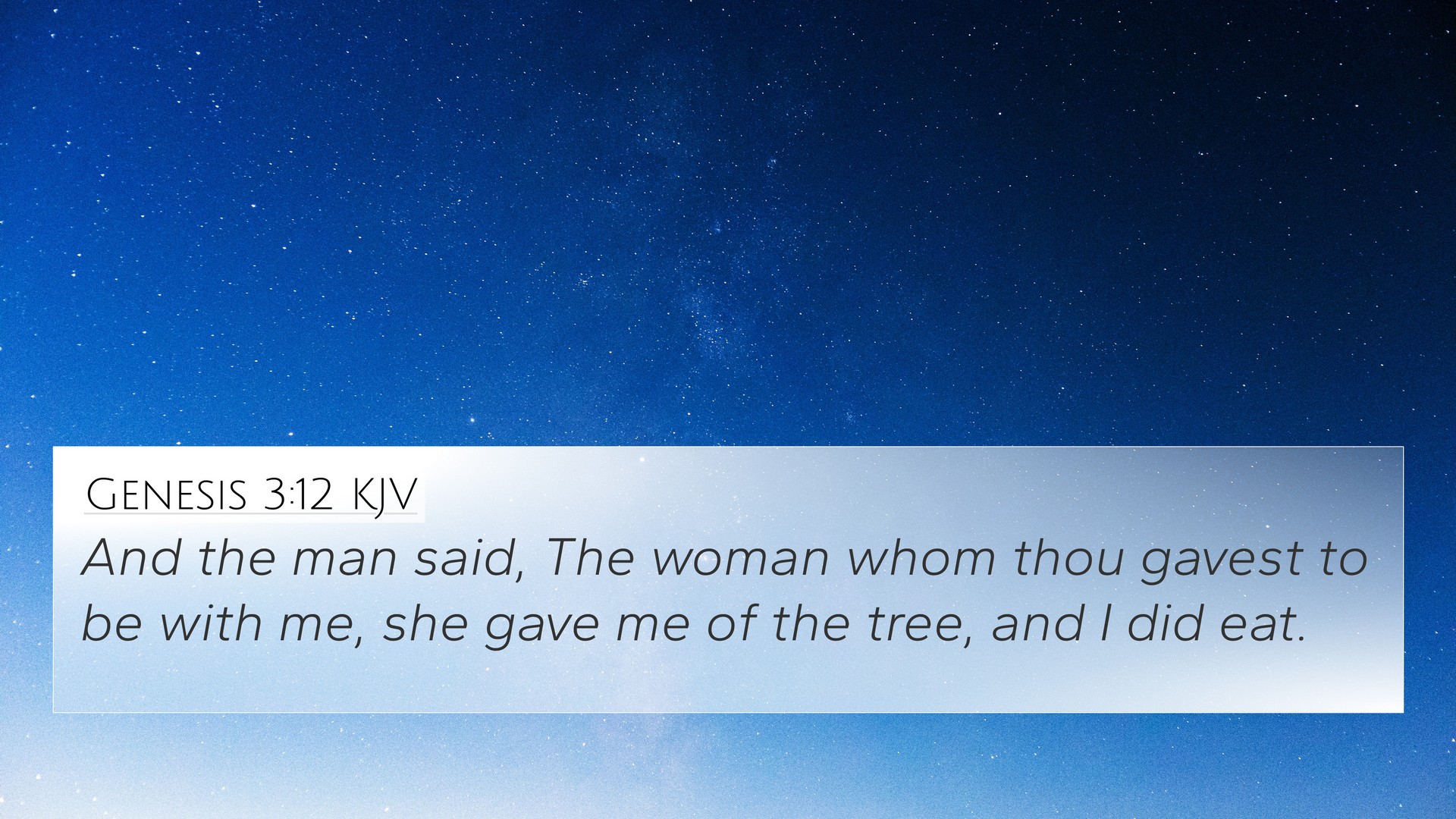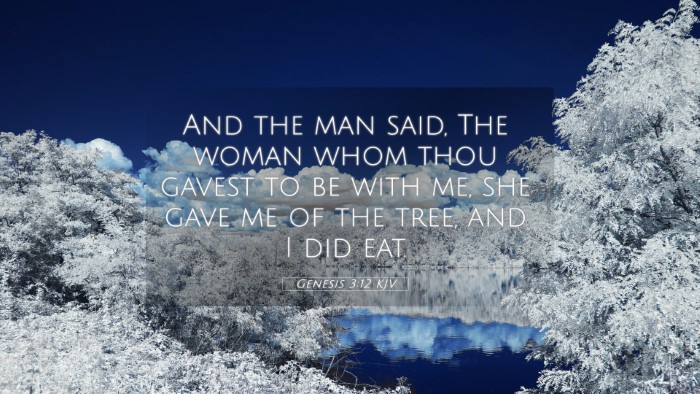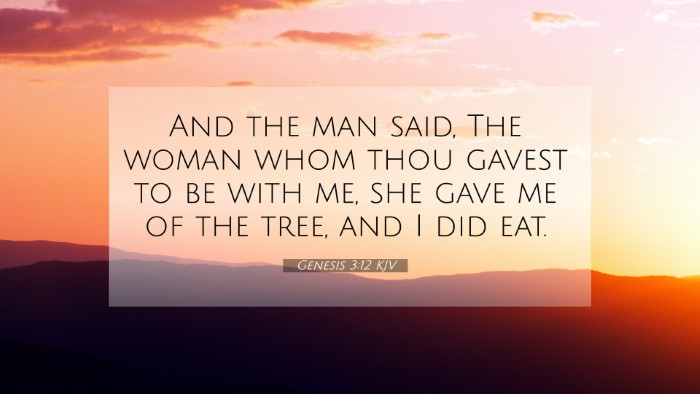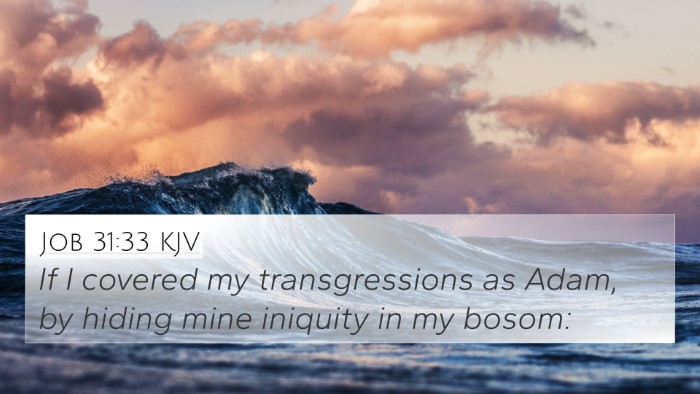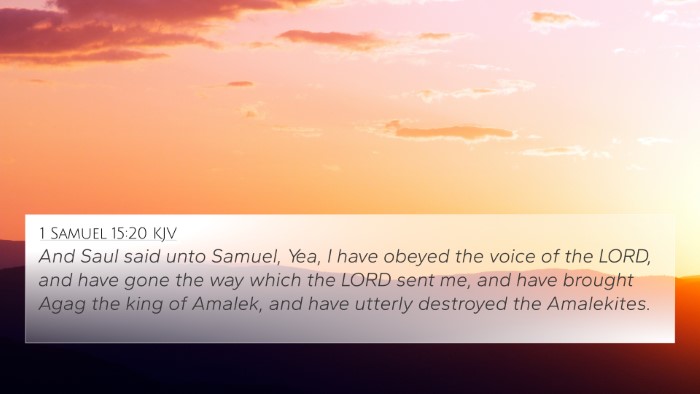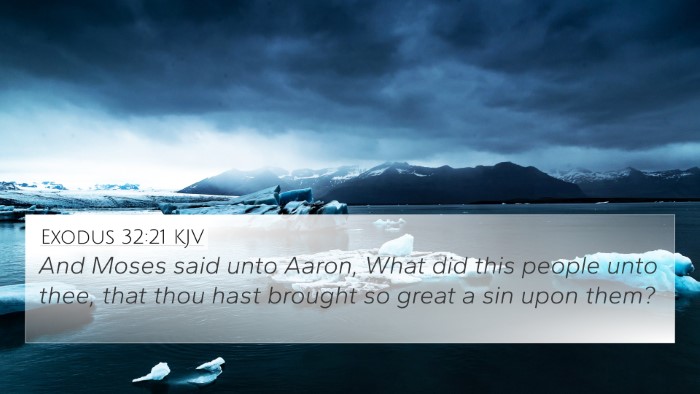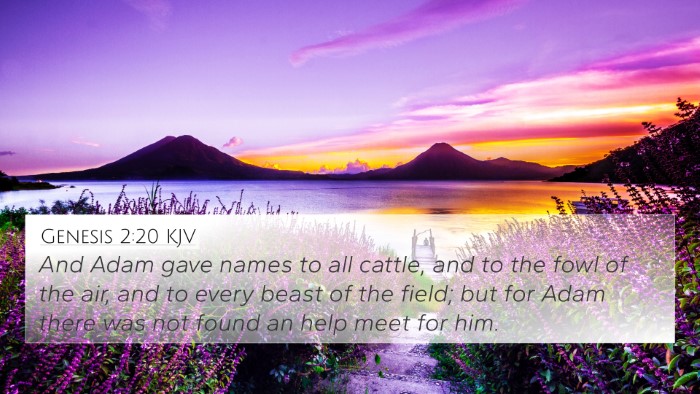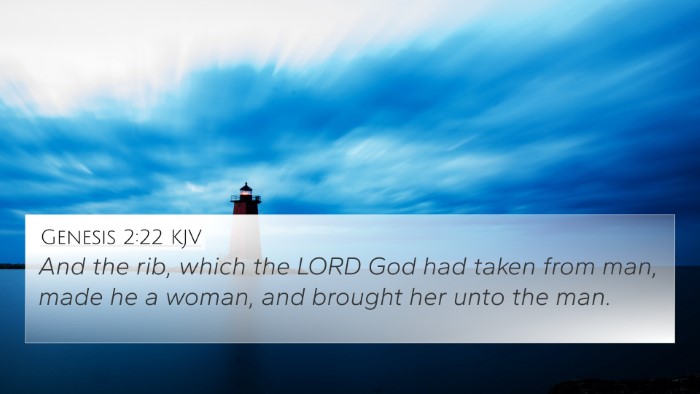Understanding Genesis 3:12
Genesis 3:12 states: "The man said, 'The woman whom you gave to be with me, she gave me of the tree, and I ate.' This text appears within the narrative of the Fall, where Adam responds to God’s inquiry about his disobedience. Below we will explore the meaning of this verse through insights from various public domain commentaries.
Contextual Overview
Genesis 3 represents a pivotal moment in biblical theology, encapsulating the initial act of sin and its implications. Adam's response to God reflects not just an admission of his own actions but also points to the themes of blame and accountability that are woven throughout scripture.
Commentary Insights
Matthew Henry’s Commentary
Matthew Henry notes that Adam's words signify both his failure to take responsibility and his attempt to attribute the source of his sin to God by referring to the woman that God provided. This illustrates the beginning of human justification and the tendency to shift blame rather than accepting personal responsibility for one’s actions.
Albert Barnes' Notes
Barnes emphasizes the relational aspect of the verse, identifying that Adam’s statement reflects not just a personal choice but the dynamics of the relationship between man and woman post-Fall. The woman’s role in his temptation is highlighted, and Barnes indicates that this is a reflection on how sin disrupts relationships. Adams' exculpation reveals a deeper theological truth about human nature.
Adam Clarke’s Commentary
Clarke posits that Adam's response is an inadvertent acknowledgment of the consequences of sin. By saying "the woman whom you gave," he implies that God’s gift (Eve) has led him into transgression. This commentary delves into the implications of this dialogue not just on a personal level but as it relates to humanity as a whole and God's sovereignty in giving humanity free will.
Connections with Other Bible Verses
The verse in question is connected with several other scriptures that illuminate the themes present in the Genesis narrative. Below are cross-references that further amplify the discussion of sin, blame, and relational dynamics.
- Romans 5:12 - Discusses how sin entered the world through one man, reflecting the impact of Adam’s choice.
- James 1:13-15 - Relates temptation and sin, clarifying human accountability in the blame-shifting process.
- 1 Timothy 2:14 - References Adam's sin as the example of how the roles of men and women are interconnected in the framework of sin.
- Genesis 3:9 - God's inquiry to Adam sets the stage for the blame that follows, showing the importance of responsibility.
- Genesis 4:8-9 - Cain's response to God when questioned about Abel mirrors Adam's evasion of responsibility.
- Ephesians 5:28-29 - Speaks to the nature of the relationship between husband and wife, serving as a counterpoint to Adam's abdication of responsibility.
- Proverbs 19:3 - Comments on how one's folly often leads to blame-shifting, a theme evident in Adam's response.
Thematic Analyses
Genesis 3:12 provides fertile ground for understanding themes that persist throughout scripture:
- Accountability - The struggle with taking personal responsibility for one’s actions is a recurring theme.
- Human Relationships - The dynamic between Adam and Eve reflects fundamental truths about interdependence and conflict.
- Temptation and Sin - This verse contributes to the broader conversation about human nature and the propensity to sin.
- Divine Sovereignty - Adam's implication about God’s role prompts questions about God’s providential action amidst human failure.
Cross-Referencing Biblical Texts
By utilizing various cross-referencing tools and methods, one can deepen their understanding of Genesis 3:12. Here are some useful resources for Bible cross-referencing:
- Bible Concordance - Helps locate related terms and themes throughout the scriptures.
- Bible Cross-Reference Guide - Serves as a systematic approach to identifying interconnected verses.
- Cross-Referencing Bible Study - Engaging with the text in this way opens up inter-Biblical dialogues that enrich understanding.
Conclusion
In summary, Genesis 3:12 encapsulates critical aspects of human nature, relational dynamics, and theological implications regarding sin. Through the lens of various commentaries and cross-referenced scriptures, a deeper understanding of this verse is gained, offering insight into the complexity of humanity’s relationship with God and each other.
